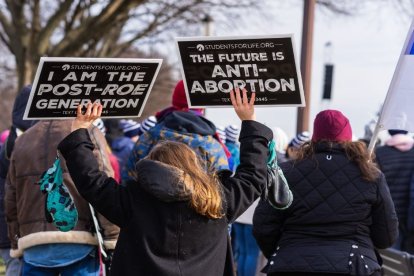Missouri becomes the eighth state to vote on abortion in the 2024 election
Florida, Maryland, South Dakota, Colorado, Nevada, Arizona and New York also submitted propositions for voters to decide on the issue in November.

People protesting about abortion.
Missouri becomes the eighth state to put a constitutional amendment on abortion directly before voters in this year's general election. Missouri Secretary of State Jay Ashcroft's office announced that the initiative succeeded in gathering the necessary number of signatures to appear on the November ballot, which could have profound implications for protecting life in the state.
Missouri joins life debate
As the abortion debate intensifies, Missouri voters will have the opportunity to decide on a constitutional amendment that would establish whether to remove current restrictions on abortion in the state, which has already faced limitations following the overturning of Roe v. Wade.
The eight states in play
Missouri thus joins seven other states that will also raise abortion-related measures on their ballots in 2024. In Florida, a proposal to enshrine in the state constitution the right to abortion up to fetal viability (generally around 24 to 28 weeks of pregnancy) will be on the ballot, in contrast to the recent six-week ban that has reduced access to the procedure in the state.
Meanwhile, in Maryland, the Reproductive Freedom Right Amendment would add a new article to secure the right to abortion in the state constitution, maintaining its legality until fetal viability
South Dakota, meanwhile, is proposing a measure that would establish a trimester regulatory framework for abortion, allowing the state to impose greater restrictions, especially in the third trimester of pregnancy.
In Colorado, voters will decide whether to strengthen protections for abortion in the state constitution and allow the use of public funds for these services, even though abortion is already legally protected in the state. Nevada also faces a crucial decision: the proposal to protect abortion rights in the state constitution will need a second vote in 2026 to become final.
In Arizona, voters will have the opportunity to approve the Abortion Access Act, which would allow abortion up to fetal viability, as opposed to the near-total ban currently in place. Finally, in New York, voters could amend the state constitution to add protections related to pregnancy and personal liberty, in a state where abortion is already legal up to 24 weeks.
In addition to these states, organizers in Arkansas, Montana and Nebraska have also submitted signatures for similar ballot propositions, continuing the national debate over abortion and the value of human life.
RECOMMENDATION





















